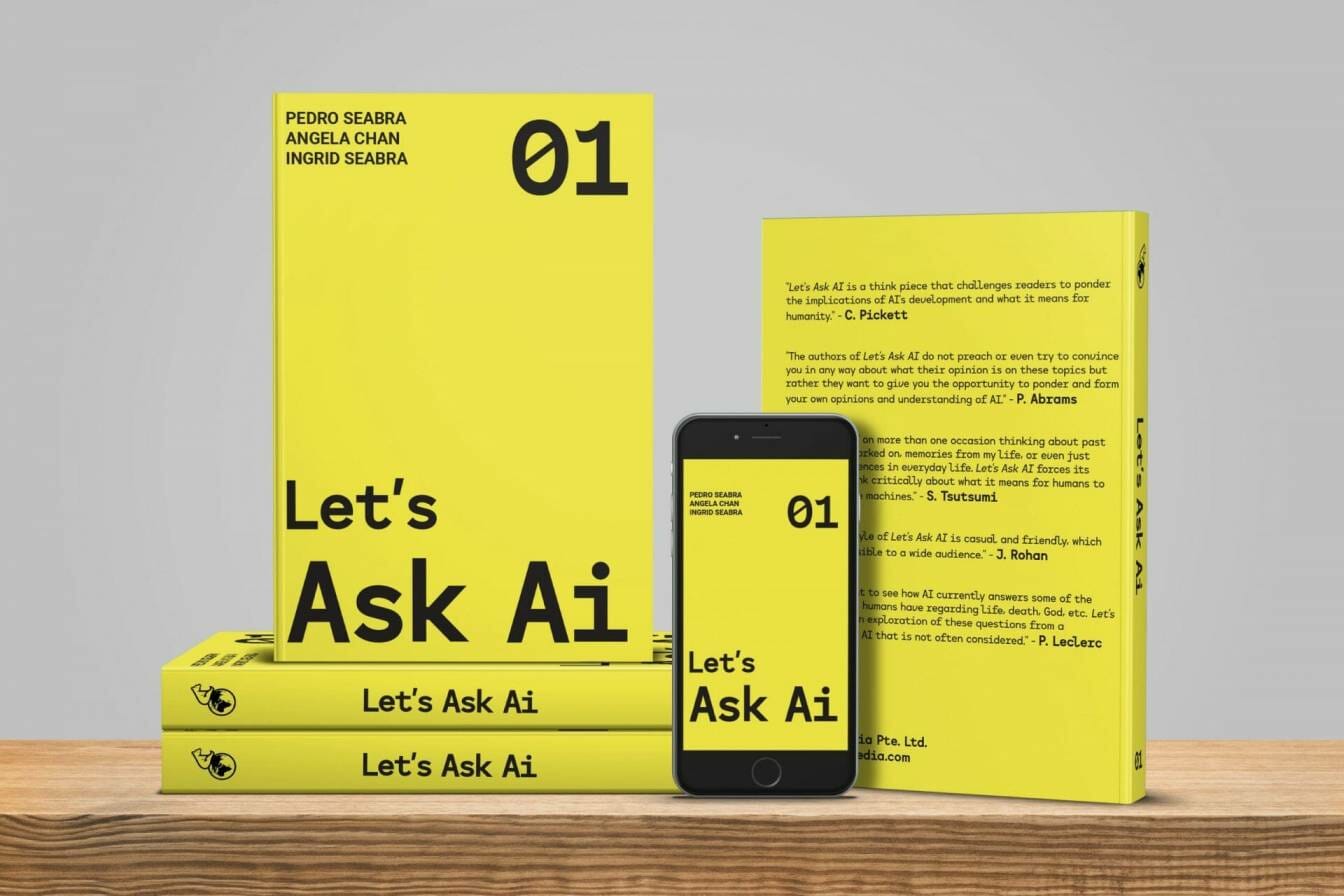
28 Nov Philosophy & GPT-3: New Book From Ingrid Seabra
Intelligence (AI) is an exciting subject in the world of technology, and it’s one that many people are interested in. This interview with “Let’s Ask AI“ author Ingrid Seabra will give you insight into what Artificial Intelligence means for our future. As we move further into the 21st century, AI has become a hot topic of discussion among scientists, inventors, philosophers, futurists, and more. But now, there is a new book written about Artificial Intelligence, GPT-3, and philosophy by Ingrid Seabra to help us all learn more about AI.
So, what is Artificial Intelligence? This word elicits many different responses because it has been used to describe so many things. A broad definition of AI would be “the theory and development of computer systems able to perform tasks normally requiring human intelligence.” In this interview with “Let’s Ask AI” author Ingrid Seabra, we explore the philosophy questions from AI’s point of view.
Ingrid Seabra’s New Book “Let’s Ask AI” Explores GPT-3 and Philosophy
NSM: Please introduce yourself and describe your background.
IS: My name is Ingrid Seabra. I have an Applied Statistics degree from Salamanca University in Spain. I am a biostatistician and mathematician by trade, and I am currently an educator, author, and consultant.
NSM: Your book is title “Let’s Ask AI.” Can you tell us about it?
IS: In addition to mathematics, I have always been interested in philosophy which I believe is the basis of everything. A few months ago, my fellow co-authors and I had a chance to experience GPT-3 in a question-and-answer capacity. AI’s responses to our questions were exceptional, so we decided to write a book that explores philosophical questions that are often overlooked when talking about AI.
NSM: Can you tell us what GPT-3 is and what are its uses?
IS: GPT-3 stands for Generative Pre-trained Transformer 3. It is an autoregressive language model, which means it utilizes past behavior to predict future behavior. GPT-3 can be used by companies to better understand customer sentiment and questions, translate text, and even create interactive stories. Researchers are still discovering new uses for GPT-3 every week.
NSM: What do you believe is the future of AI?
IS: I think AI will continue to evolve in new and exciting ways. It will get smarter, faster, more naturalistic, and better at understanding complex questions with sparse data.
NSM: What is your view on GPT-3?
IS: I think GPT-3 is an excellent one for humanity to adopt. The more we can spread optimism and hope, the better off we will be in a world that seems increasingly chaotic. Artificial Intelligence has come a long way over recent years with developments such as machine learning and deep neural networks, which continue to evolve in new and exciting ways. It is not clear yet what these advancements mean for society, and there are risks involved that researchers should work together on before they happen or become too significant or irreversible. In general, my view towards AI is favorable, seeing how it could help us solve so many of our problems like climate change or diseases if we use it responsibly.
NSM: Will all wisdom be replaced by AI in the future?
IS: I believe AI will help humans solve their problems. I do not think it is inevitable that Artificial Intelligence will replace all human wisdom, but we should use AI responsibly to make sure this does not happen any more than is necessary.
NSM: Who should read this book, and what do they stand to gain from it?
IS: This book is for anyone who is interested in philosophy and Artificial Intelligence. It is not a technical book that only appeals to researchers and scientists. This book has questions that should be of general interest to most readers because they mainly deal with common interests. The answers provide many points to consider as well as being entertaining.
NSM: What are some of your future projects that we can look forward to reading or hearing about in the near future?
IS: My co-authors and I are currently working on another AI book. I am also developing a book on mathematics for young adults.
Philosophy is not just for philosophers. “Let’s Ask AI” will help you see the world differently. It is a book that can open your eyes to new ideas and perspectives with every question. You do not need to be an expert in AI or philosophy to find this book interesting, and you may even learn something new about yourself as you read it. If you are ready for an insightful read that will challenge your preconceptions about life as we know it, order this fascinating book today! Available in paperback on Amazon and Barnes & Noble. Also available in eBook on Nook, Apple, Kobo, and others. Get your eBook here. To learn more about Ingrid Seabra, visit her website at ingridseabra.com.
You may also read: THE EXPERIMENTAL SURREALIST DIGITAL ART OF ED ATKINS
